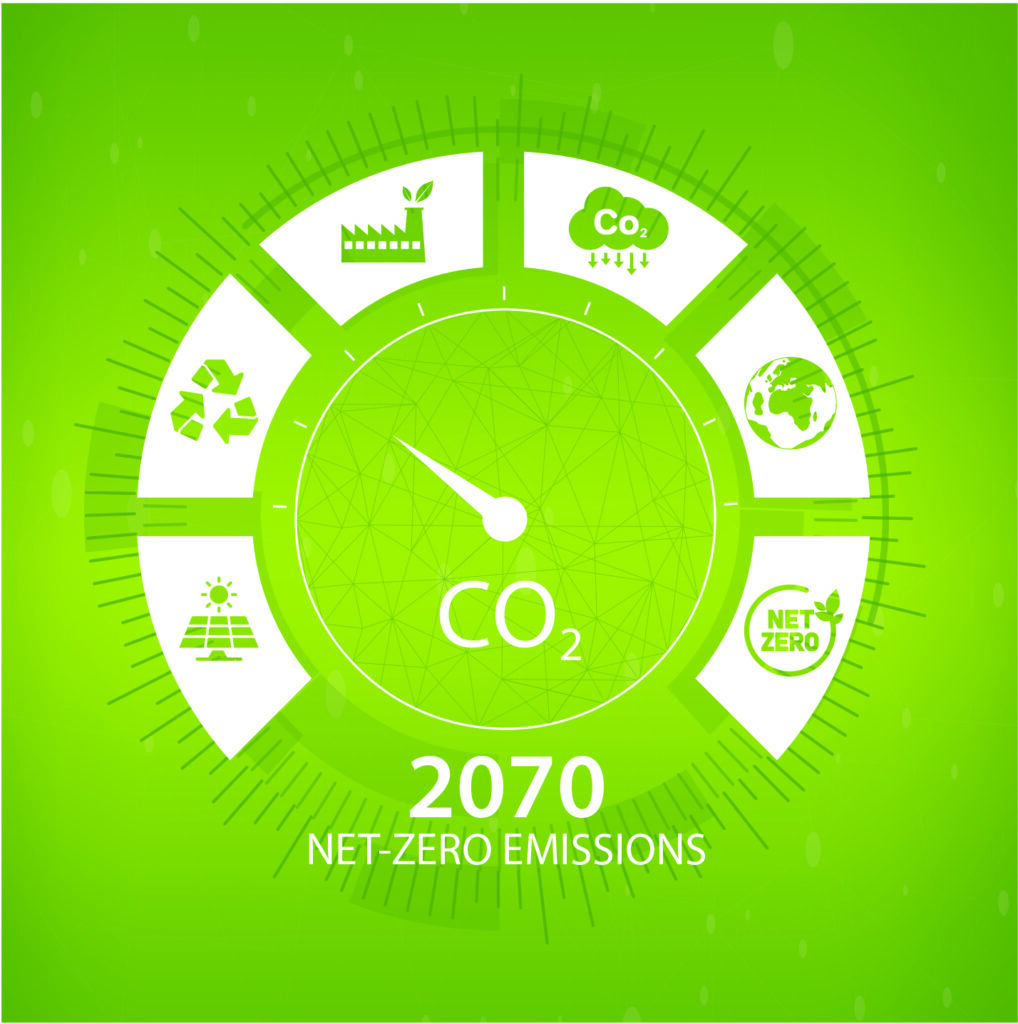As climate change accelerates and its effects become more severe, regions worldwide are adopting ambitious goals to mitigate greenhouse gas (GHG) emissions. Gujarat, one of India’s most industrialized states, is leading the charge in this global effort by outlining a detailed roadmap to achieve net-zero carbon emissions by 2070. This roadmap, presented in the comprehensive whitepaper prepared by the Indian Institute of Management Ahmedabad and the Indian Institute of Technology Gandhinagar, demonstrates Gujarat’s commitment to aligning industrial growth with climate resilience and sustainability.
Gujarat’s Industrial Process and the Climate Challenge
Gujarat is a significant player in India’s economic development, contributing around 8.3% to the country’s GDP. The state has established itself as a leader in sectors such as petrochemicals, automobiles, food processing, and renewable energy. However, this industrial progress has led to environmental challenges, particularly in terms of GHG emissions and resource depletion. Recognizing these challenges, the Government of Gujarat has committed to a low-carbon future that harmonizes economic prosperity with environmental stewardship.

Strategic Sectors for Decarbonization
Achieving net-zero emissions by 2070 requires a holistic approach that addresses multiple sectors. Gujarat’s roadmap focuses on five key sectors: energy, industry, transportation, agriculture, and urban planning. The state’s decarbonization strategy involves a blend of innovation, policy intervention, and financial incentives:
- Energy Transformation: Gujarat plans to scale up renewable energy capacity, focusing on offshore wind power, solar energy, and green hydrogen. These renewable sources are pivotal in reducing dependence on fossil fuels. The introduction of battery energy storage systems will help stabilize the grid and ensure the efficient use of renewable energy.
- Green Hydrogen and Industry 4.0: Green hydrogen is set to play a transformative role in industries like steel and chemicals. Industry 4.0 technologies, including digitalization and automation, will enhance energy efficiency and reduce emissions in manufacturing and industrial processes.
- Sustainable Transportation: Transitioning to electric vehicles (EVs) and promoting public transportation are central to Gujarat’s strategy for reducing emissions from the transportation sector. Initiatives like the Gujarat Electric Vehicle Policy are designed to accelerate the adoption of EVs across the state.
- Agriculture and Land Use: The report emphasizes sustainable agricultural practices, such as vertical farming, micro-irrigation, and organic farming, to reduce resource consumption and increase resilience against climate impacts. Expanding forest cover and enhancing mangrove ecosystems along the coastline will also serve as critical carbon sinks.
- Urban Planning and Resilient Cities: With a significant urban population, Gujarat is focusing on creating climate-resilient cities through sustainable urban planning, energy-efficient buildings, and integrated waste management systems. Policies like the Gujarat State Water Policy and initiatives for recycling treated wastewater are key to building sustainable urban environments.

Key Policy Frameworks and Financial Instruments
The success of Gujarat’s decarbonization efforts hinges on effective policy implementation and access to finance. Notable policies include:
- Gujarat Wind-Solar Hybrid Policy: This policy encourages the development of hybrid renewable energy projects, leveraging both wind and solar resources.
- Surya Urja Rooftop Yojana: This initiative promotes the installation of solar rooftop systems, reducing the carbon footprint of residential buildings.
- Green Hydrogen Policy: Gujarat aims to position itself as a hub for green hydrogen production, supporting decarbonization across multiple sectors.
Local and Global Impacts
Moreover, the state’s alignment with national strategies, such as the National Green Hydrogen Mission and the Lifestyle for Environment (LiFE) Mission, ensures that Gujarat’s efforts contribute to India’s broader climate goals. The roadmap aligns with India’s commitments under the Paris Agreement and supports the nation’s Nationally Determined Contributions (NDCs), which include reducing the emission intensity of GDP by 45% by 2030 and increasing the share of non-fossil energy sources in electricity generation to 50%.

A Vision for the Future
Gujarat’s decarbonization strategy represents a long-term commitment to sustainability. By prioritizing renewable energy, technological innovation, and community-driven initiatives, the state is laying the groundwork for a future where economic growth and environmental conservation go hand in hand. This vision for 2070 is a testament to Gujarat’s leadership in climate action and its dedication to building a greener, more resilient world for future generations.
For More Detail Please Check Our Website : www.urjaassistance.com

